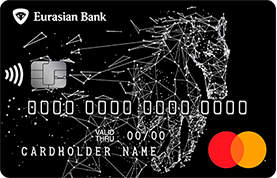“You just need to accept the money to the card and send it to” … This is how the story begins, which leads to a criminal case.
According to the National Bank’s Anti-Fraud Center, over 3, 000 cases have been registered in Kazakhstan since the beginning of the year when young people aged 18 to 24 became droppers participating in schemes to transfer stolen money.
They think they have found a side job, but in reality, they become accomplices in financial crimes.
Eurasian Bank anti-fraud experts Saule Isabekova and Asiya Kusanova, together with the Cyber Police and the FinGramota Project, told students of Narxoz University and the International University of Information Technologies about this.
How droppers are recruited
Scammers act simply: they write at social networks, at forums, at Telegram or through friends.
They offer “easy earnings”: accept a transfer, register as an individual entrepreneur, issue a payment card at different banks.
They explain that everything is legal: “this is business assistance,” “transfer between clients,” “logistics.” They promise 1 to 3% for the service. Sometimes they even give a fake contract.
“A dropper is not a victim, but an accomplice, emphasized Saule Isabekova. “Young people do not realize that they are involved in laundering stolen funds. And according to the law, this is a crime, even if you “just helped transfer money.” And as soon as the stolen money passes through the card, the responsibility falls on the owner.”
Why are young people targeted?
Gullibility, the desire to make quick money, and faith in “smart schemes” are the perfect combination for scammers.
“That’s why they choose young people,” Saule Isabekova said. “Many people do not have a permanent job yet, but they have a desire to earn money quickly. Someone wants to buy a new phone, someone wants to help their parents, and someone wants to pay for their studies. But the money that comes too easily is almost always someone else’s.”
Her advice is simple but accurate:
“If you can’t clearly explain where the money came from and why, it’s better not to touch it at all. One transfer could cost you a criminal record.”
Other scams traps: calls, investments, fake shops
During the lectures, Eurasian Bank experts analyzed other schemes that remain the most profitable for cybercriminals:
1. False calls
“This is the Bank Security Service. There is suspicious activity on your account.”
Since the beginning of the year, there have been more than 22 thousand such calls, the average damage is 2.5 million tenge.
“Scammers work according to pre-prescribed scenarios. The best thing to do is just hang up the phone,” advised Saule Isabekova.
2. Investments that don’t exist
TikTok and Telegram ads promise “revenue of up to 200%.” At first, everything “works”, the profit “grows”, then both the website and the money disappear.
“Don’t trust anyone who offers quick income without risk”, said Asiya Kusanova. “If you want to invest, study the company, read the contract, consult with a bank or financial advisor. The more questions you ask, the less likely you are to lose money.”
3. Fake shops
Huge discounts, “warehouse liquidation”, “only today”. After payment – silence.
“Check the website, contacts, and reviews. Too low a price is always an alarm signal,” recalled Asiya Kusanova. “Never transfer money to personal cards as honest stores use official payment services and receipts.”
“My answer is the word NO.”
During the lectures, students were also shown a series of My answer is the word NO educational videos by Eurasian Bank. The videos were prepared in collaboration with the Fingramota.kz Project. The main message in the videos is: “If anyone calls you – supposedly the security service, law enforcement agencies, or courier delivery – asking you to provide an SMS code, transfer money, or provide personal information, doubt it and say no.
“Show these videos to your family, especially parents and elderly relatives,” Saule Isabekova advised. “They are more likely to become victims of phone scams. Sometimes one simple warning can save a person from great losses.”
The videos are available at the Eurasian Bank official website at here and here.
Today, the Bank consistently works to improve financial literacy – it conducts lectures to students and schoolchildren, makes educational videos, regularly publishes current fraud schemes at the Bank website and trains employees to recognize customers who are under the influence of intruders.





